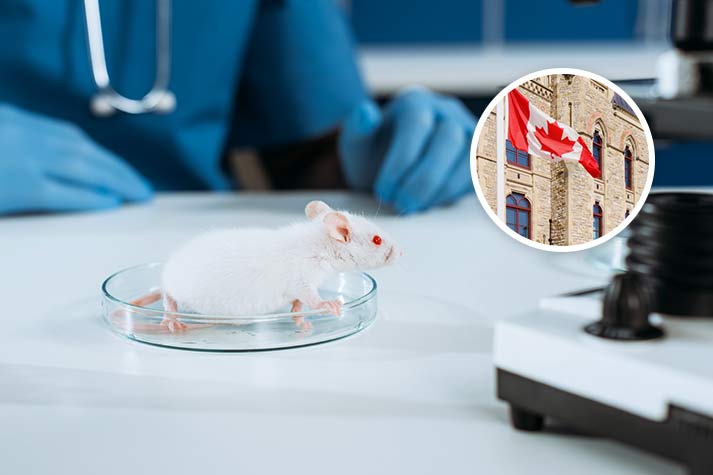
15 Sep
Canada seeks to reduce reliance on animal experiments
The Canadian government has announced a new national strategy aimed at reducing the use of animals in scientific testing. The plan is designed to modernize research practices and encourage the use of alternative methods that do not rely on live animals.
For decades, animals such as mice, rabbits, and fish have been used in experiments to test chemicals, medicines, and consumer products. While these studies have played an important role in public safety, there is growing concern about animal welfare and the need for more advanced scientific approaches.
Under the new strategy, Canada will work closely with scientists, industry leaders, and animal welfare groups to promote the “3Rs” approach i.e., replacement, reduction and refinement. This means finding ways to replace animal tests with the new technologies using fewer animals when testing is necessary, and refining methods to minimize pain and stress.
The government also plans to support investment in alternative tools such as computer modeling, cell-based systems and other non-animal research methods. Officials say this will not only improve animal welfare but also lead to faster and more reliable results for scientific and regulatory purposes.
Environmental and health groups have welcomed the announcement, saying it aligns Canada with international efforts already underway in Europe and the United States. They believe the strategy will encourage innovation while reducing harm to animals.
The move comes after updates to Canada’s Environmental Protection Act which recognized the need to move away from animal-based testing. While experts say it will take time to fully phase in alternatives, the government’s commitment marks an important step towards more ethical and modern science.





AUTHOR’S BIO
Carry My Pet
Passionate pet enthusiasts and globetrotters, dedicated to easing furry friends' journeys worldwide. Penning tales of compassion at CarryMyPet, where every relocation is a tail-wagging adventure.